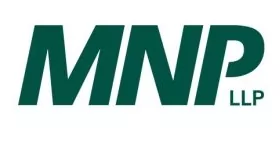Why Worry?
As Canadian income tax residents are taxed on their worldwide income, the Government of Canada is concerned about the underreporting of "offshore" income. As well, Canada Revenue Agency (CRA) is always seeking to glean insight into the tax-planning and tax-sheltering behaviour of investors. Form T1135 requires reporting by Canadian resident individuals (as well as trusts and most corporations) of foreign property holdings in excess of threshold amounts (i.e. cost amount more than CAD $100,000) to provide information to the Canadian tax authorities to address these concerns. Generally, the penalty for failure to file a Form T1135 is $2,500 for each instance of failure (i.e. for an individual taxpayer, for each year of failure). In addition to financial penalties, failure to file the T1135 on time and to properly report income from specified foreign property for 2013 and subsequent taxation years could result in an extension of the normal reassessment period of a tax return for an additional three years.
2013 Changes
While this reporting requirement has existed since 1998, CRA announced in its 2013 federal budget that it would be requiring far more detailed information from taxpayers with respect to their reportable foreign property for 2013 and future taxation years.
A revised form was released last summer. To no one's surprise, the tax reporting and financial community raised concerns about the volume and detail of information required and challenges faced by taxpayers in meeting the dramatically expanded reporting requirements. As a result, CRA announced transitional relief for the 2013 taxation year including:
(i) streamlined reporting methods; and
(ii) a filing deadline extension to July 31, 2014 for all taxpayers.
Under the transitional relief, taxpayers are allowed to report the combined value of all specified foreign property held in each of their accounts with a Canadian-registered securities dealer as opposed to investment-by-investment detail as contemplated by the original expanded requirements. As well, an exception from detailed reporting requirements is provided where the taxpayer has received a T3 or T5. Accordingly, in February of 2014, CRA issued a revised version of the form to reflect the transitional relief.
An Opportunity or a Threat?
For 2013 and future years, it is very important for taxpayers to assess their reporting requirements related to foreign property they own, especially in light of the potential extension of the normal reassessment period by three additional years.
It's also essential to recognize that many taxpayers, often unknowingly, have not adequately reviewed their potential T1135 filing requirements in 2012 and prior taxation years. The penalties for late filing of Form T1135 have little relationship to the economic significance of the oversight. Furthermore, CRA is known to be vigilant and rigorous in their administration of these penalties.
The good news is, an opportunity exists for taxpayers to mitigate penalties for late filing of T1135's (and potential failure to report foreign income related to the relevant foreign property) for 2012 and prior years, through CRA's voluntary disclosure program. As one of the requirements of the voluntary disclosure program is that the disclosure is "voluntary" (that is, the taxpayer did not initiate the disclosure based on current enforcement activities), it is important to pursue voluntary disclosure opportunities in the very near future. There is a concern that CRA will respond to the flurry of first-time 2013 T1135 filing on or around July 31, 2014 with enforcement / review activity related to prior and potentially non-compliant years.
A thorough review by taxpayers (especially individual taxpayers) of their foreign property income arising from these holdings and treatment / disclosure in their historical Canadian income tax returns is key to potentially alleviating penalties associated with late filing of T1135's and improper reporting of income related to these properties. CRA is going to great lengths to punish taxpayers who follow a "head in the sand" approach related to foreign property reporting (i.e. form T1135).
One More Thing
Recently (July 8, 2014), CRA released a revised Form T1135 and related guidelines for 2014 and subsequent years. Essentially, CRA is extending the "transitional reporting method," with some modifications, to the 2014 and subsequent taxation year while eliminating the T3 / T5 reporting exception.
For more information on the revised foreign property reporting requirements (including links to the 2013 requirements and the 2013 and 2014 versions of form T1135 and related instruction), please reference the following link from CRA.
The content of this article is intended to provide a general guide to the subject matter. Specialist advice should be sought about your specific circumstances.

